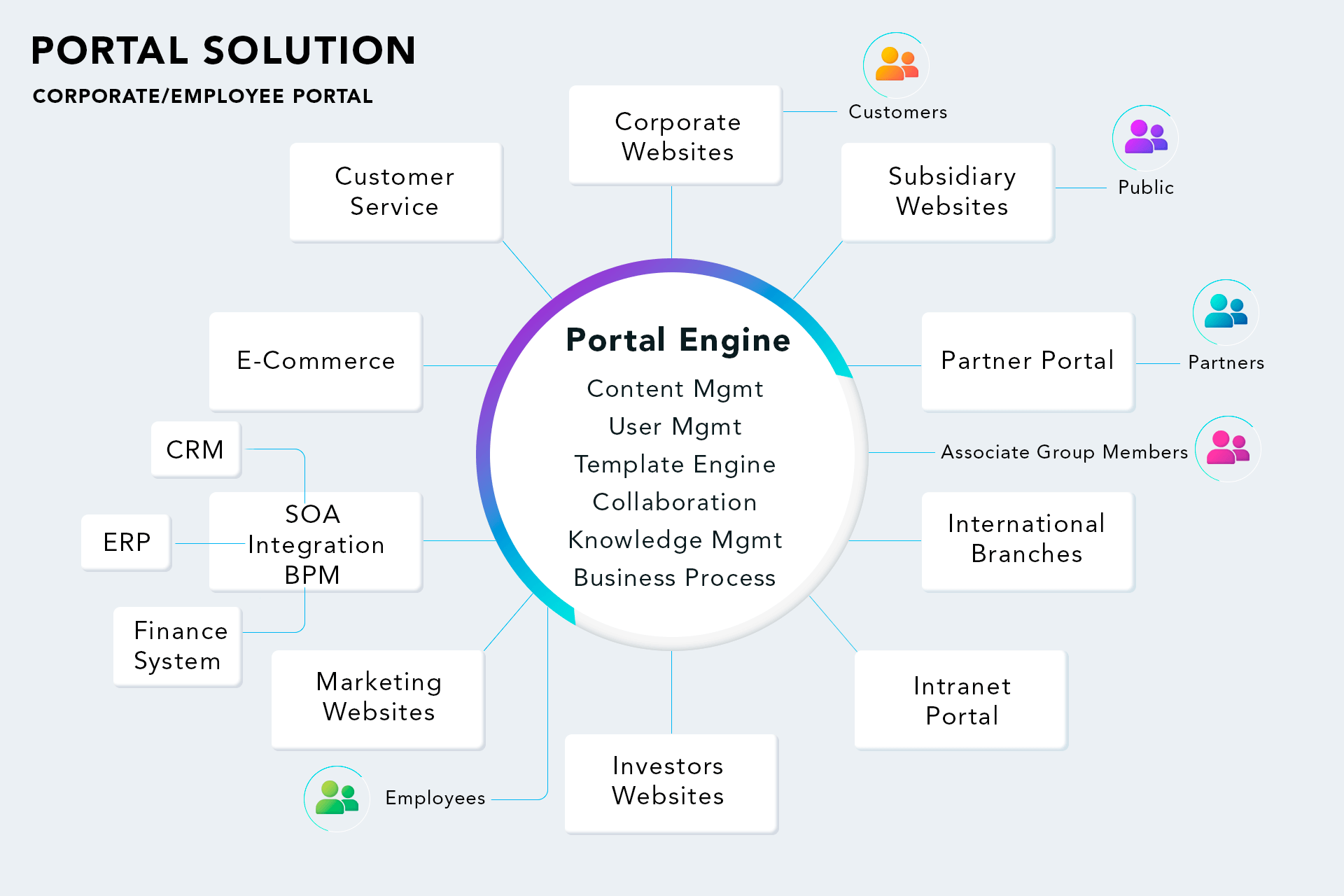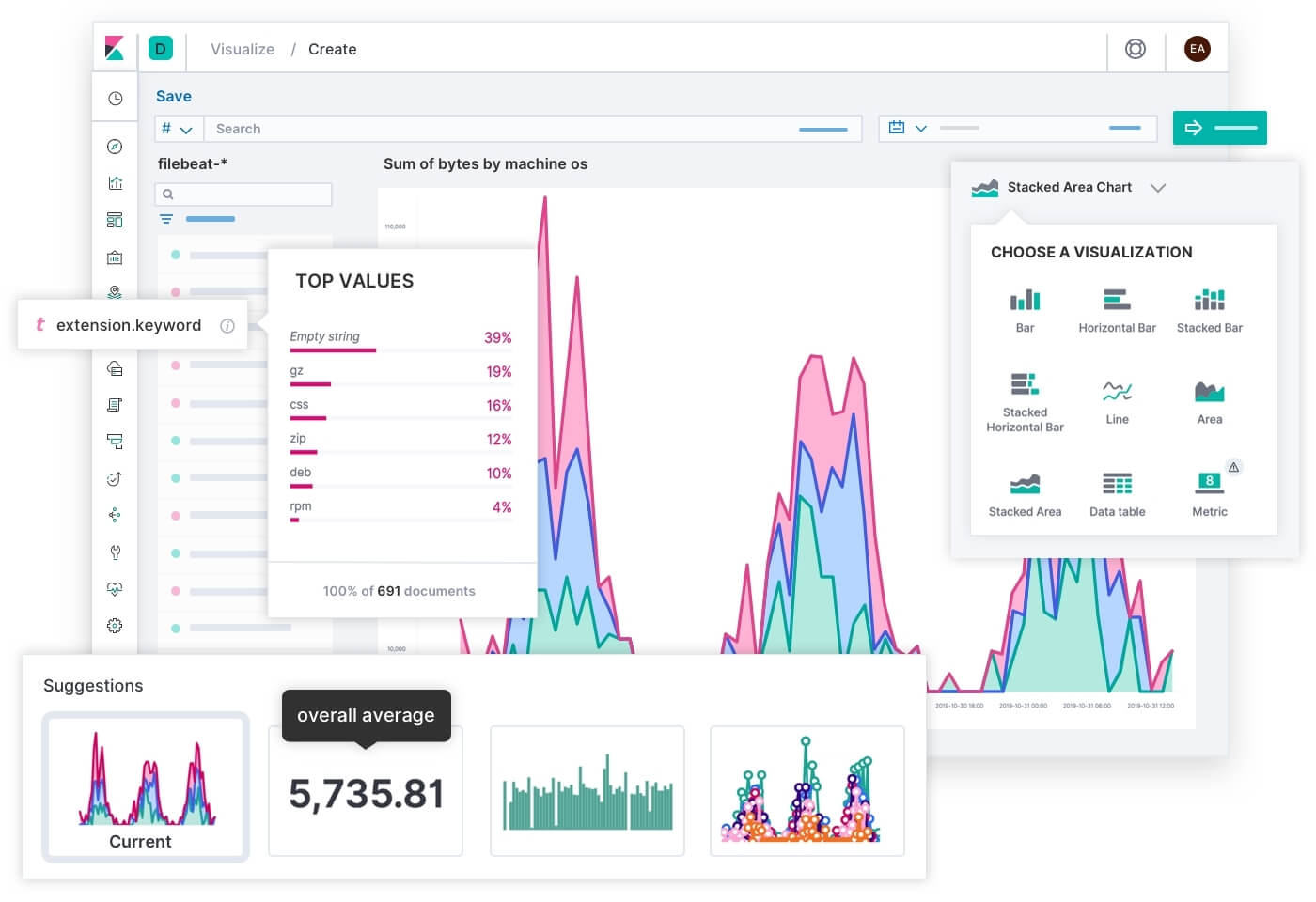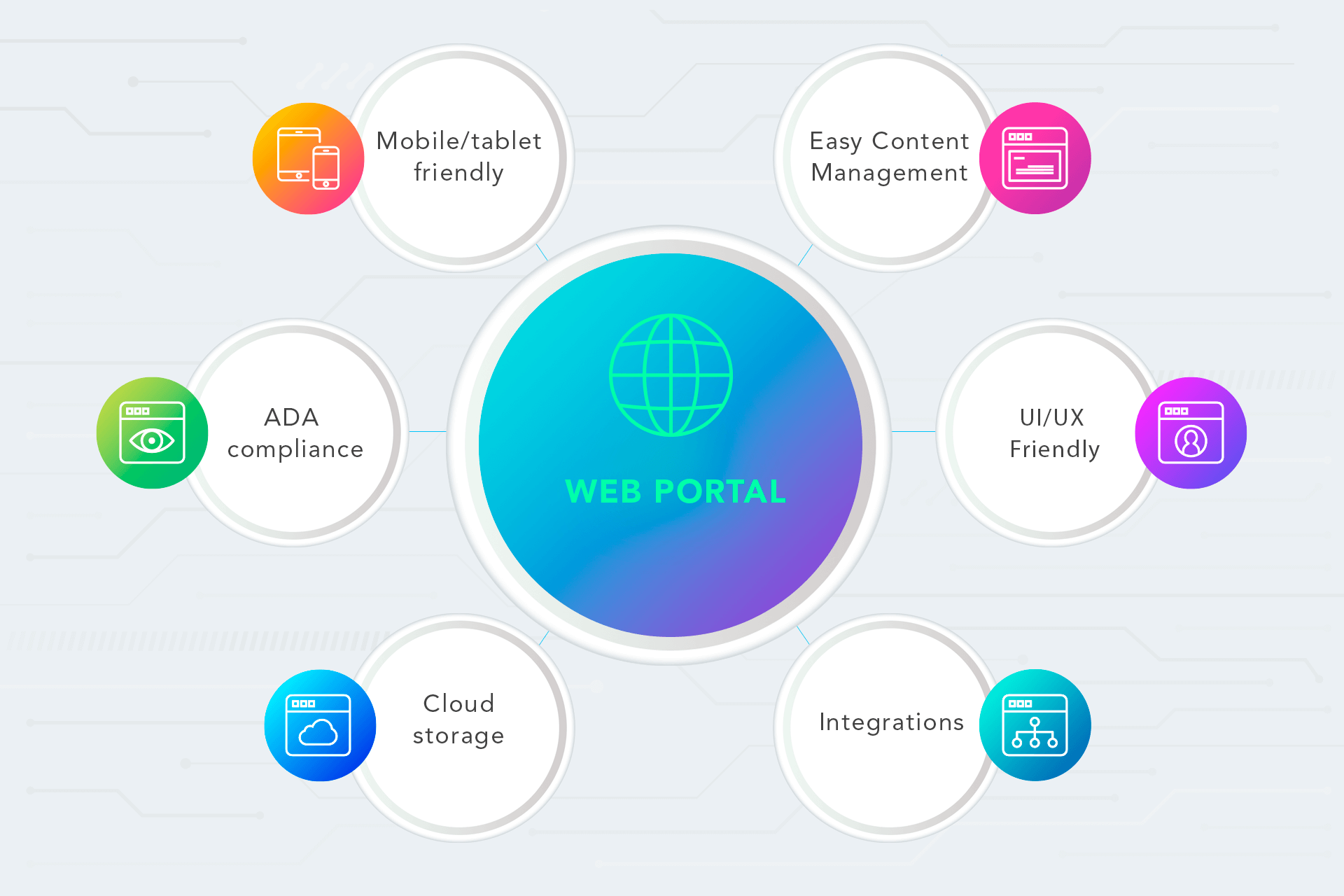Web portal solutions serve one major purpose: they provide authorized access to the information in a web browser.
These are secure websites that provide users with single-point access to the most relevant information. Web portals usually accumulate tons of content ( e-mail, documents, surveys, chats, polls… etc.), structure it, and have an effective and easy-to-use interface to work with this content. Web portal development is getting more and more popular because, in reality, each and every business has a pool of sensitive information it needs to share with employees, vendors, partners, and clients.
What Are the Types of Web Portals Today
There are different web portals: B2B &B2C customer web portals, corporate web portals, vendor web portals, employee web portals, and learning web portals. Though they share the same basic architecture, they have different purposes, and thus, distinctive features differentiate them.
Client web portals are supposed to give clients (both B2B and B2C) access to the information that is relevant to them: product catalogs, policies, invoices, payments, and deliveries. Сlient web portals speed up the communication between businesses and clients and make automate the majority of operations.

Vendor or partner web portals are online platforms for multiple vendors and partners who aim to work with the core business that created this portal. Web portal solutions have the possibility of online bidding and quote posting, reviewing, invoice, and payment issuance.
Learning web portals are created for users who want to study new information in a comfortable digital environment. Many businesses, educational institutions, and courses create web portal software for these purposes. E-learning web portals allow customers to access the information they need comfortably, pass tests, and track their progress with the help of data analytic tools.
Employee/corporate portals are a must for companies undergoing digital transformation. These portals incorporate multiple features for effective communication and collaboration of the employees: content management, chats, forums, document exchange, and employee training. Softengi, one of the leading web portal development companies in the Eastern European market, has extensive experience, which we would love to share.
Web Portal for an MBA School Corporate Web Portal of Unified State Registers
Employee/Corporate Web Portal Solutions
Employee/ corporate portals are all about effective information sharing, transparency, and accessibility of corporate processes. Web portals can be beneficial if there are one or several issues the company aims to solve:
- Ineffective operational activity, many duplicated processes. Lack of unification and transparency leads to time & money losses;
- Poor and superficial knowledge/document management processes of the employees;
- Unconsolidated database of content. Employees keep business-related information on personal computers or in a cloud;
- Ineffective and chaotic communication between colleagues performed via multiple channels leads to repetitive processes and the inability to track the results of this communication;
- The process of hiring & onboarding is puzzling and is not systematic;
- No possibility of tracking historical data of operational processes;
- No possibility of employees contacting C-level specialists directly;
- Ineffective collaboration in terms of remote offices;
- No possibility of reaching the employees who don’t work in front of their PCs, like in the case of a plant or a factory;
- Unclear and ineffective data visualization.
Employee portals or corporate portals are equally important for the HR department as well as for the COO, CIO, CFO, and CMO. Corporate web portals become hubs for communication, cooperation, and interaction between employees.
Softengi’s Perks for Developing Corporate Web Portals
A Tool for Data Visualization. It turns out that many non-technical specialists like project and operational managers want to see the analytics of all the processes going on inside the enterprise web portal via a comprehensible and user-friendly medium. That’s where Kibana comes in handy. It’s an effective data exploration and visualization solution.

Using common statistics tools, such as histograms, pie charts, or heat maps, web portal users get access to operational intelligence. Also, Kibana is closely integrated with Elasticsearch, one of the market’s most effective analytics and search engines.
Smart Survey – a Tool for Data Accumulation. Consolidation of the information is impossible without regular surveys. Many companies accumulate valuable data from the employees’, clients’, and partners’ questionnaires to extend the general picture with the most up-to-date data. In most cases, they use popular survey templates available on the market, such as Google Surveys or Survey Monkey. This approach proves to be ineffective and, what is more important, insecure. Smart survey solutions help companies collect sensitive data, process and analyze it.
Characteristics of Modern Web Portals
- Mobile/tablet-friendly web portals. The majority of modern users prefer to have access to the information they need the minute they understand this need.
- Easy content management. One of the major purposes of any portal is to provide users with access to the information they need and the ability to add it when required. Our own CMS allows users to create different pages based on the set of templates or create a unique interface using specific color schemes.

- UI/UX Friendly Web Portals. As portals are aimed to alleviate the navigation of users between tons of various content. Without friendly UI/UX, any web portal, regardless of the amount of useful information, any web portal is useless.
- Integrations with the systems that are important to the clients.
- Cloud storage or on-premises solution. Cloud storage is not an option anymore – it’s a necessity. A cloud storage can be AWS Azure or Google Cloud.
- ADA compliance (American Disability Act), which means that people with disabilities must be able to access the information on the web portal easily.
Conclusion
The main purpose of creating web portals is the desire to provide users with a multifunctional platform that will combine services in various areas of activity within one coherent concept. Developing web portal software can solve the following tasks for a business. Automation of repetitive processes – integration with various systems allows you to be in touch with users, quickly provide them with the necessary information, and personalize the business. Сonsolidation of information – the portal allows you to create a point of concentration of narrow-profile information. This can be a specific topic, communication, and document management for a company, discussion of issues in one of the areas of life, and so on. Security – the web portal software is created so that only authorized users can get access to it.





